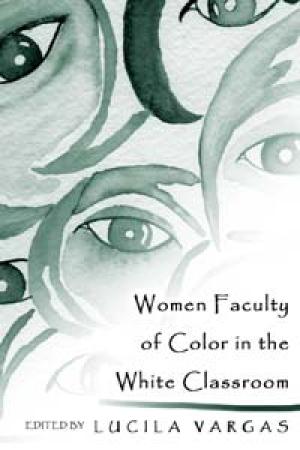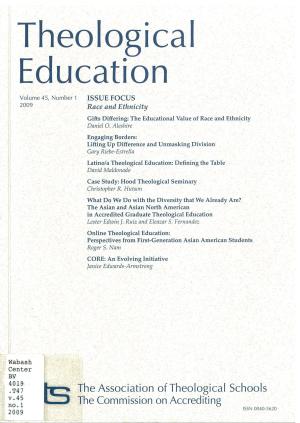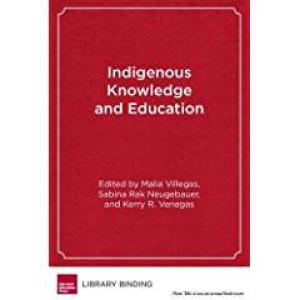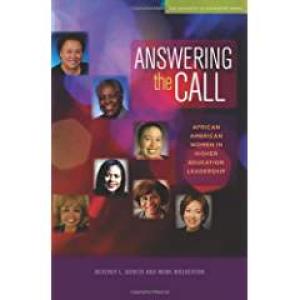Resources

What is it like for women of color to teach in predominantly white college classrooms? This anthology is about the pedagogical implications of diversifying the faculty of higher education. It compiles narratives by women professors of color who interrogate their classroom experiences in predominantly white U.S. campuses to examine the impact of their social positions upon their classroom practices and their teaching-learning selves. The authors reflect upon their unique classroom challenges and talk about the teaching-learning strategies they use to find rewards in their interactions with students. This anthology explores the larger question of how social distinctions shape classroom social life and will be a resource for those concerned with enabling the diversification of the faculty of institutions of higher learning. (From the Publisher)

This book transcends recent debates about political correctness to address the underlying problems of teaching controversial subjects in the college and university history classroom. The author criticizes both sides of the debate, rejecting, on the one hand, calls for a uniform, chronological history curriculum and, on the other hand, claims that only ethnic or racial "insiders" are qualified to teach about their communities. In chapters on colonial, comparative, and African history, Williams applies the concept of "Gandhian truth" to historical subjects, moving through tentative and flexible perspectives to achieve a complex picture of historical episodes. And in chapters on imperialism, nationalism, racism, and the problem of "the other," he discusses the difficult and contingent nature of conceptual language. In the second half of the book, he addresses framing rules of discussion by which sensitive issues can be discussed with diverse audiences, the relationship of American pluralism to a world perspective, and what can be accomplished through an education in pluralism. (From the Publisher)

147 Practical Tips for Teaching Sustainability: Connecting the Environment, the Economy, and Society
The stone age didn't end because of a lack of rocks! one educator is fond of stating. While there were certainly an abundance of rocks available, stone age people moved on to a new era because it become possible for them to envision and create a different and more useful way of organizing life. Many believe that we are currently at a similar juncture and can begin to imagine and construct new ways to live on our planet. We are the first generation capable of determining the habitability of the plant for humans and other species, writers Anthony Cortese in the introduction. Teachers at every level can play an important role in helping us find a sustainable path. Exploring ideas about sustainability is appropriate for all disciplines, plus community groups, business and industry. The diverse backgrounds of the authors of this volume demonstrate exciting situations in which sustainability is critical. (From the Publisher)

Critics from three major racial/ethnic minority communities in the United States African American, Asian American, and Latino/a American focus on the problematic of race and ethnicity in the Bible and in contemporary biblical interpretation. With keen eyes on both ancient text and contemporary context, contributors pay close attention to how racial/ethnic dynamics intersect with other differential relations of power such as gender, class, sexuality, and colonialism. In groundbreaking interaction, they also consider their readings alongside those of other racial/ethnic minority communities. The volume includes an introduction pointing out the crucial role of this work within minority criticism by looking at its historical trajectory, critical findings, and future directions. (From the Publisher)

Journal Issue. Full text is available online.

This book brings together essays that explore Indigenous ways of knowing and that consider how such knowledge can inform educational practices and institutions. Indigenous Knowledges is resiliently local in character and this poses a distinct contrast to the international, more impersonal system of knowledge prevalent in Western educational institutions. In the words of Mi'kmaq scholar Marie Battiste - a leading proponent of Indigenous Knowledge and a contributor to this volume - Indigenous Knowledge expresses "the vibrant relationships between the people, their ecosystems, and the other living beings and spirits that share their lands." Indigenous Knowledge and Education argues that such knowledge has much to offer schools and students in the United States and beyond. This volume examines a wide range of Indigenous cultures and educational settings, including Native American, Haitian, Mexican, African, and Australian. Uniting all are three themes exemplified by many Indigenous cultures: struggle, strength, and survivance--the later a notion of survival that emphasizes remembrance, regeneration, and spiritual renewal Each of these themes is explored in a rich array of articles and capped with new essays by Marie Battiste, Gregory A. Cajete, and Bryan McKinley Jones Brayboy. A wide-ranging and persistently stimulating volume, Indigenous Knowledge and Education casts contemporary theories and debates about education in a new--and essential--light. (From the Publisher)
Journal Issue.

Although much has been written about leaders and leadership, we unfortunately know little about women, particularly minority women, who fill this particular role. This book the second in a series that explores women leaders in different contexts presents the stories, and the reflections on their paths to leadership, of seven African American women. Five are, or have been, college presidents; three have devoted a good portion of their lives to leadership in higher education policy at state and/or national levels. Each has been the first woman, or first African American, or first African American woman in one or more of the positions of authority that she has held. Along the way, they have overcome the double bind of sexism and racism that can inhibit the professional attainment of African American women, particularly as they move toward the top of their professions. Although their pathways into leadership are different, definite similarities in their experiences, values, and beliefs emerge. Their values took root in the 1960s, a time of strong cohesion in the Black community, a time during which African Americans and women made great strides toward equality. They recognize that they owe their strength to the confidence and sense of empowerment instilled in each of them by parents and early role models. Several of them believe that their leadership skills were born out of their childhood experiences. Grateful for the support they have received, these women leaders express a need to give back to those communities that nourished their growth and leadership of which this book is a manifestation. At a time when national demographic dataindicate that a significant turnover in college leadership is about to occur presenting increased opportunities for women and minorities these African American women leaders hope that the strategies they describe, the insights they impart, the experiences they recount, and, most of all, the passion they have sustained for the betterment of and greater inclusiveness in higher education, will inspire the next generation of women to answer the leadership call. The African-American Women Leaders Covered in this Book: Debra Austin, Lois Carson, Marvalene Hughes, Yolanda Moses, Beverly Daniel Tatum, Jerry Sue Thornton, Belle S. Wheelan. These women exude strength and self-confidence. They each hold the belief, as Belle Wheelan puts it, that "with a little heart and a lot of learning I can do anything". (From the Publisher)